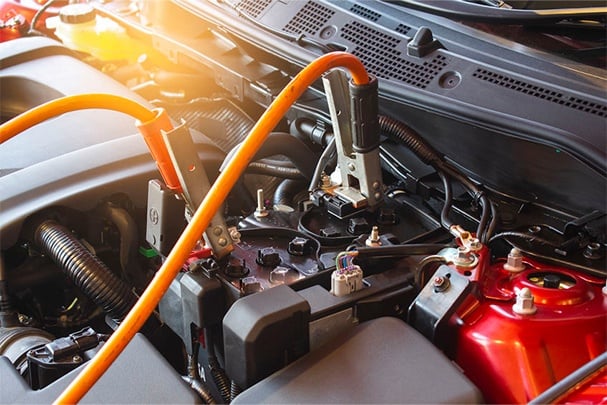Car Maintenance 101 Tips and Tricks
Car Maintenance 101: Essential Tips and Tricks for Every Driver
Understanding the Basics of Car Maintenance
Car maintenance refers to the routine activities that ensure a vehicle remains in optimal functioning condition. It encompasses a variety of essential tasks, including regular inspections and servicing, which are crucial for both the longevity and performance of the vehicle. Routine maintenance not only helps in identifying potential issues before they become significant problems but also plays a vital role in enhancing the safety and reliability of the vehicle.
One of the key components that require regular attention is the engine. The engine is the heart of the vehicle, and neglecting its maintenance can lead to costly repairs and decreased fuel efficiency. Regular oil changes, air filter replacement, and spark plug inspections are fundamental practices to keep the engine running smoothly.
Tires represent another critical area that demands consistent care. Ensuring proper tire pressure and regular rotation can vastly improve handling and extend tire lifespan. Worn-out tires can adversely affect traction and safety, thereby necessitating periodic checks for tread wear and alignment issues.
Brakes are integral for vehicle safety and require regular inspections to confirm their operational efficiency. Drivers should be mindful of any unusual sounds when braking, such as squeaking or grinding, which may signify the need for immediate assessment by a professional.
Furthermore, monitoring fluid levels, including engine oil, coolant, and brake fluid, is essential for the vehicle’s performance. Low fluid levels can lead to overheating, engine failure, or diminished brake capability. Regularly checking these levels can prevent unnecessary breakdowns and ensure the vehicle operates seamlessly.
Proper car maintenance ultimately extends the vehicle’s lifespan, enhances fuel efficiency, and cultivates a safer driving experience. Prioritizing these fundamental aspects of car care lays the groundwork for proficient handling of more specific maintenance tasks in subsequent sections.
Essential Maintenance Tasks Every Driver Should Know
Maintaining a vehicle is crucial for its longevity, safety, and overall performance. As a responsible driver, you should familiarize yourself with several essential maintenance tasks that can be easily performed or monitored. These tasks include checking and changing the oil, replacing air filters, rotating tires, and monitoring brake pads.
Firstly, checking and changing the oil is fundamental. Engine oil lubricates the engine components, and old or inadequate oil can lead to excessive wear. To check the oil level, locate the dipstick, remove it, wipe it clean, and then reinsert it. The oil should be between the minimum and maximum markers. If the oil appears dark and gritty, it’s time to change it. Typically, an oil change is recommended every 5,000 to 7,500 miles, depending on the type of oil used. You will need a wrench, an oil filter wrench, an oil pan, and the appropriate oil for your vehicle.
Next, replacing air filters is essential for maintaining optimal engine performance. A clean air filter ensures that your engine receives adequate airflow, which improves fuel efficiency. The air filter should be checked every 12,000 to 15,000 miles. To replace the air filter, locate the air filter housing, remove the cover, and replace the old filter with a new one. Ensure you secure the cover properly to avoid dirt entering the engine.
Rotating tires is another important task that ensures even tire wear and extends tire life. It is advisable to rotate tires every 5,000 to 8,000 miles. This can typically be done using a jack, jack stands, and a lug wrench. Follow your vehicle’s manual for the recommended rotation pattern, as this can vary among vehicles.
Lastly, monitoring brake pads is critical for safe driving. Listen for squeaking or grinding noises when braking, as they may indicate worn brake pads. Inspect the pads at least once a year. If they appear thin or you’re experiencing a decrease in braking performance, they should be replaced. Regular inspection of these essential maintenance tasks will help you maintain your vehicle proactively, ensuring it runs smoothly and safely over time.
Tips for Keeping Your Car in Optimal Condition
Maintaining a car’s appearance and functionalities is essential for ensuring long-term performance and safety. Regular washing and waxing are fundamental practices that help preserve the paintwork and exterior surfaces. Cleaning the vehicle every two weeks, especially in areas prone to salt or dirt accumulation, can prevent corrosion and maintain the aesthetics. Applying a quality wax can provide a protective layer against harmful UV rays and environmental contaminants, which can degrade the car’s finish over time.
Equally important is keeping the interior clean. Regular vacuuming and wiping down surfaces can prevent wear and tear, contributing to a more pleasant driving experience. Utilize protective mats to shield the carpets from stains and scuffs, and opt for seat covers when necessary. Maintaining the interior not only enhances comfort but can also increase resale value later.
Ensuring that the engine is running smoothly requires scheduled maintenance checks. Routine oil changes, typically every 5,000 to 7,500 miles, are crucial for engine health. Additionally, keeping an eye on the fluid levels, including coolant, brake fluid, and transmission fluid, can aid in the early detection of potential issues. Checking the battery terminals for corrosion and confirming that the battery is in good condition can prevent unexpected breakdowns.
Seasonal maintenance also plays a significant role in vehicle performance. For winter driving, consider using winter tires for better traction and checking the antifreeze levels to guard against freezing temperatures. Conversely, as summer approaches, ensure that the air conditioning system is functioning efficiently, and inspect tires for wear that could affect fuel economy and safety.
Lastly, remain vigilant for warning signs such as unusual noises, vibrations, or warning lights on the dashboard. Early detection of these issues can often prevent serious damage, making it imperative for drivers to stay alert and proactive about their vehicle’s health.
When to Seek Professional Help for Your Car
Understanding when to seek professional assistance for your car is crucial for maintaining both vehicle performance and safety. While many drivers are capable of handling routine maintenance tasks independently, certain problems may arise that require specialized expertise. For instance, engine issues such as unusual noises, burning smells, or warning lights on the dashboard should not be ignored. These symptoms can indicate serious mechanical failures that may escalate if not addressed promptly by a qualified technician.
Similarly, electrical problems, including malfunctioning lights, electrical shorts, or issues with the car’s ignition system, are complex and often require diagnostic equipment that is beyond the reach of the average driver. Ignoring electrical faults can lead not only to unreliable vehicle performance but also to safety hazards on the road. Moreover, if you experience any collision damage, even if it seems minor, seeking a professional assessment is advisable. The structural integrity of your vehicle may have been compromised, and a professional evaluation can help ensure that it remains safe for driving.
Finding a trustworthy mechanic is also an essential part of car maintenance. Recommendations from friends and family, along with online reviews, can guide you to reliable auto services. Additionally, understanding service warranties can save you money and provide peace of mind. Always check if the repairs are covered under warranty to avoid unexpected expenses. Staying informed about recalls, which can be found on government websites, is equally important to ensure your vehicle’s adherence to safety standards.
A balanced approach that incorporates both DIY maintenance and professional services will lead to the best outcomes for your vehicle. While self-diagnosis and minor repairs can empower drivers, recognizing the limits of your abilities is vital for effective and safe car upkeep.
#Car Maintenance, #Vehicle Maintenancetips, #Tire Maintenance, #when to seek professional help


Car Maintenance 101 Tips and Tricks,Car Maintenance 101 Tips and Tricks,Car Maintenance 101 Tips and Tricks,Car Maintenance 101 Tips and Tricks,Car Maintenance 101 Tips and Tricks,Car Maintenance 101 Tips and Tricks,Car Maintenance 101 Tips and Tricks,Car Maintenance 101 Tips and Tricks,Car Maintenance 101 Tips and Tricks,Car Maintenance 101 Tips and Tricks,Car Maintenance 101 Tips and Tricks,Car Maintenance 101 Tips and Tricks,Car Maintenance 101 Tips and Tricks,
